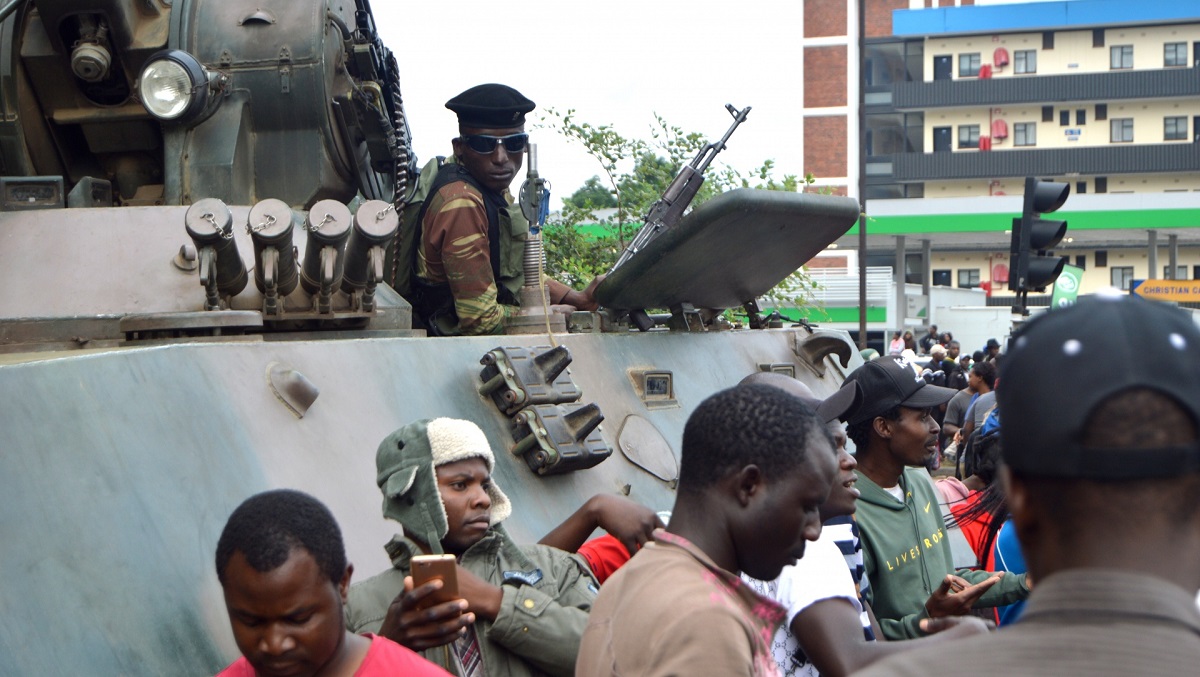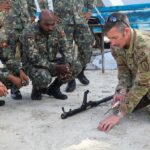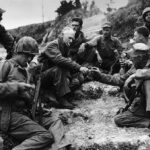
The recent surge of coups d’etat in Africa holds significant implications for U.S. foreign policy. Dr. Naunihal Singh, author of Seizing Power: The Strategic Logic of Military Coups, joins host Carrie Lee to discuss his extensive research on this topic. They explore the definition and historical context of coups, examining the intricate dynamics involved. Dr. Singh’s insights, particularly on the role of mid-grade military officers, offer a unique perspective on this complex issue, crucial for those interested in civil-military relations and the future of democracy.
I was interested in democracy. I was interested in development. I was interested in conflict and it seemed that all of these things all revolved around questions of the military, particularly in developing countries. And so if you were going to have a democracy, what’s the major threat to democracies? Well, it’s coups.
Podcast: Download
Subscribe: Apple Podcasts | Spotify | Amazon Music | Android | Pandora | iHeartRadio | Blubrry | Podchaser | Podcast Index | TuneIn | Deezer | Youtube Music | RSS | Subscribe to A Better Peace: The War Room Podcast
Naunihal Singh is an associate professor and director of the Africa Regional Studies Group at the U.S. Naval War College. He received his BS from Yale and his PhD from Harvard. He has taught at the University of Notre Dame, the United States Air War College prior to coming to the Naval War College. He is the author of Seizing Power: The Strategic Logic of Military Coups as well as multiple articles published in both scholarly journals and general publications. Most recently, he is the author of “The Myth of the Coup Contagion,” in the Journal of Democracy, and his research has been featured in the New York Times, Washington Post and Foreign Policy Magazine.
Carrie A. Lee is an associate professor at the U.S. Army War College, where she serves as the chair of the Department of National Security and Strategy and director of the USAWC Center on Civil-Military Relations. She received her Ph.D. in political science from Stanford University and a B.S. from MIT.
The views expressed in this presentation are those of the speakers and do not necessarily reflect those of the U.S. Naval War College, U.S. Army War College, U.S. Army, or Department of Defense.
Photo Description: An infantry fighting vehicle in Harare, Zimbabwe during the November 2017 coup.
Photo Credit: Tafadzwa Tarumbwa via Wikimedia Commons





Consider such thing as “coups” — and civil-military relations more generally — from the perspective offered below. In this regard consider, first and foremost, the following two quoted items:
1. From Page 41 of Samuel P. Huntington’s famous “Political Order in Changing Societies:”
“The apparent relationship between poverty and backwardness, on the one hand, and instability and violence, on the other, is a spurious one. It is not the absence of modernity but the efforts to achieve it which produce political disorder. If poor countries appear to be unstable, it is not because they are poor, but because they are trying to become rich. A purely traditional society would be ignorant, poor, and stable.”
2. From our own JP 3-22 Foreign Internal Defense, therein, see Chapter II, Internal Defense and Development Program, and Paragraph 2, Construct:
“a. An IDAD (Internal Defense and Development) program integrates security force and civilian actions into a coherent, comprehensive effort. Security force actions provide a level of internal security that permits and supports growth through balanced development. This development requires change to meet the needs of vulnerable groups of people. This change may, in turn, promote unrest in the society. The strategy, therefore, includes measures to maintain conditions under which orderly development can take place.”
As we can see from the above-quoted items, development/modernization efforts (because they commonly/normally require some degree of — often unpopular and threatening — political, economic, social and/or value change), commonly/normally create a certain degree of unrest and instability within a country, society and/or region. (As to this latter, such as Africa?)
Thus the role of the military, in these such common/normal modernization/development circumstances, this is — likewise commonly and normally — to “provide a level of internal” (and external?) “security that permits and supports growth”/”to maintain conditions under which orderly development can take place.”
Thus, when “coups” — and/or some other negative change in civil-military relations takes place — in modernizing/developing countries/societies — can this often be traced to the above-noted duties and responsibilities of militaries, in these such modernization and development cases?
Given that the post-Cold War period has been a time in which modernization (or further modernization) and development (or further development) of countries (to include our own) has been attempted on a worldwide scale. And a time, thus, in which often unpopular and threatening political, economic, social and/or value change has been attempted by governments on a worldwide scale (to include our own);
Given these such matters, then — consistent with my thesis above — cannot the increase in “coups” — and the increase in other negative civil-military relations problems occurring both here at home and there elsewhere throughout the world during this post-Cold War period — cannot these such matters also be attributed in some manner to (a) the common/normal duties and responsibilities of militaries (see the second to last paragraph of my initial comment above); this, (b) in these such modernization (or further modernization) and development (or further development) circumstances?
(In this regard, if one’s military forces have not, as yet, actually engaged with their populations as to these matters, the common understanding that — in times of modernization and development — this, in fact, is their job — this such common understanding, one might suggest, could/did cause the civil-military relationships to begin to go downhill?)
Here is the quote found at the introduction to this podcast above:
“I was interested in democracy. I was interested in development. I was interested in conflict and it seemed that all of these things all revolved around questions of the military, particularly in developing countries. And so if you were going to have a democracy, what’s the major threat to democracies? Well, it’s coups.” (And, thus, the military?)
To make a point, let’s reverse/change this quoted item, with me talking/speaking this time:
“I was interested in development. (My principal and primary focus.) I was interested in democracy (because democracy can support –or can hinder/stop and/or reverse — necessary development). I was interested in conflict (which can occur when democracies choose to maintain and/or to restore such things as traditional social values, beliefs and institutions — which are the matters which commonly/normally stand directly in the way of, and thus prevent, necessary development). And it seemed to me that all of these things all revolved around questions of the military (whose job it often is ‘to provide a level of internal and external security that permits and supports growth’/to maintain conditions under which orderly development can take place’ [See my initial two comments above]). And so, if you are going to have development, what’s the major threat to development? Well, it can be democracy, as I have attempted to explain above.”
As to my “me talking/speaking” item immediately above, should I not also have note that conflict can occur — not just when democracies choose traditional social values, beliefs over development — but also when democracies choose development over traditional social values, beliefs and institutions?